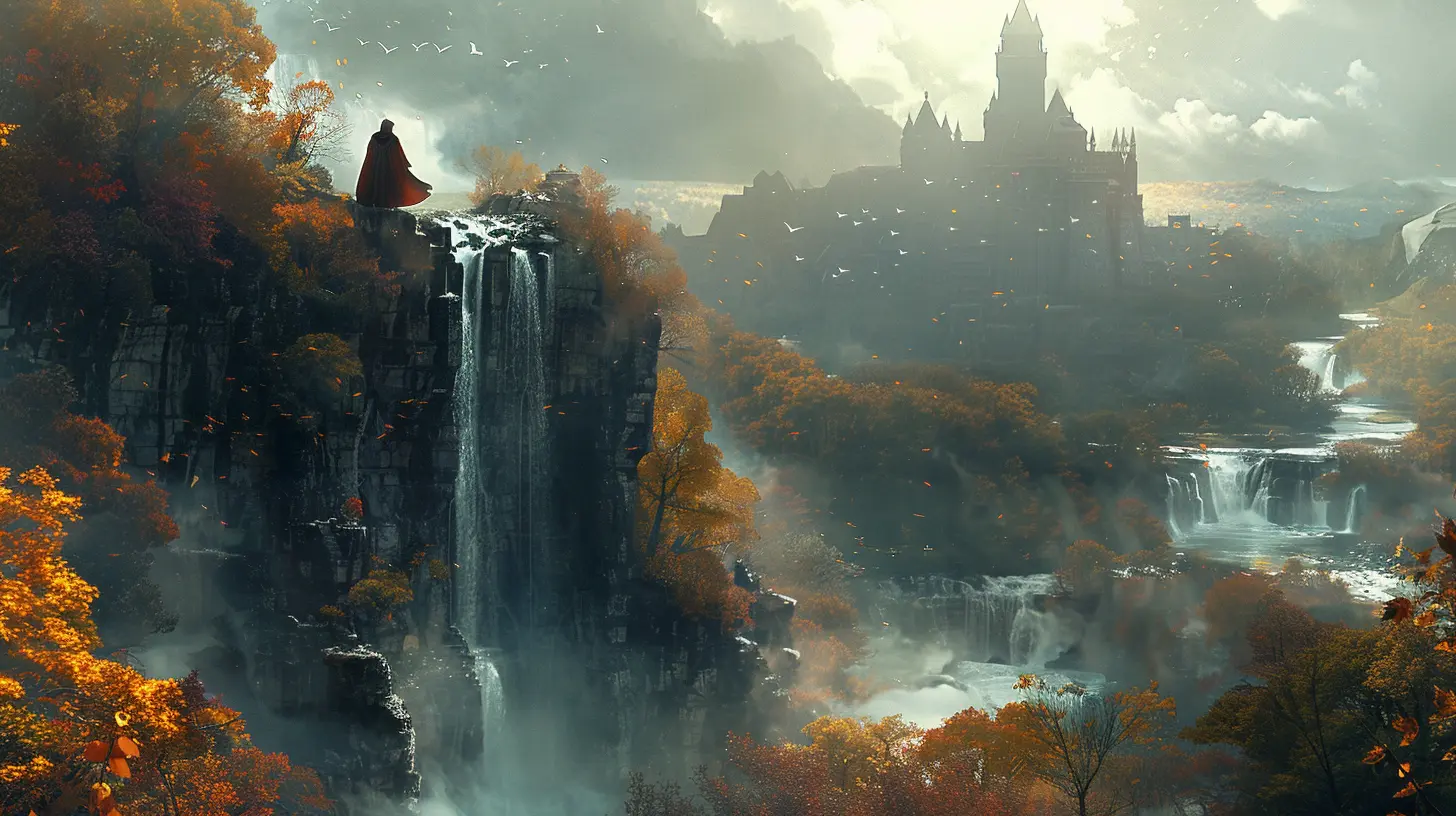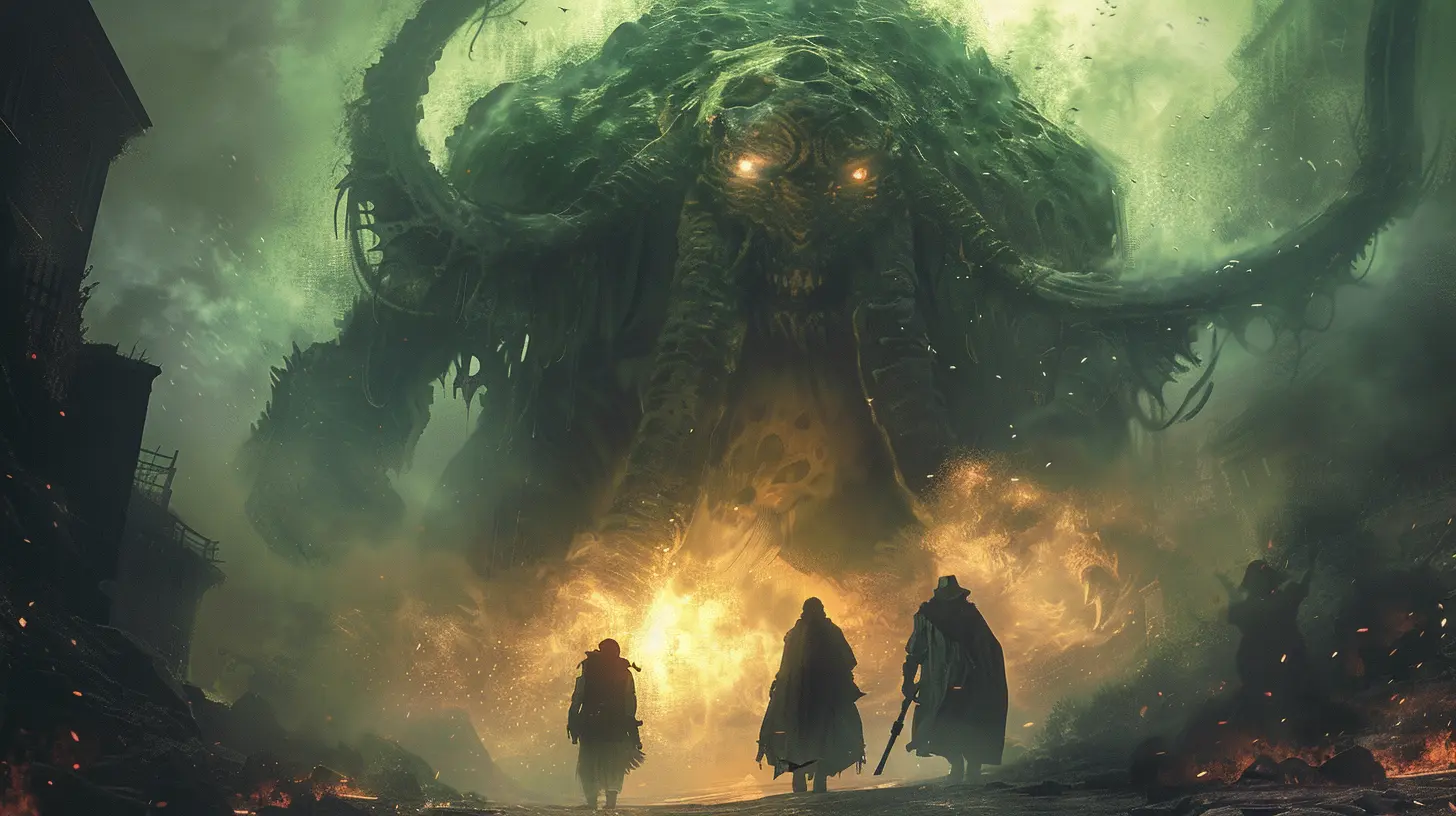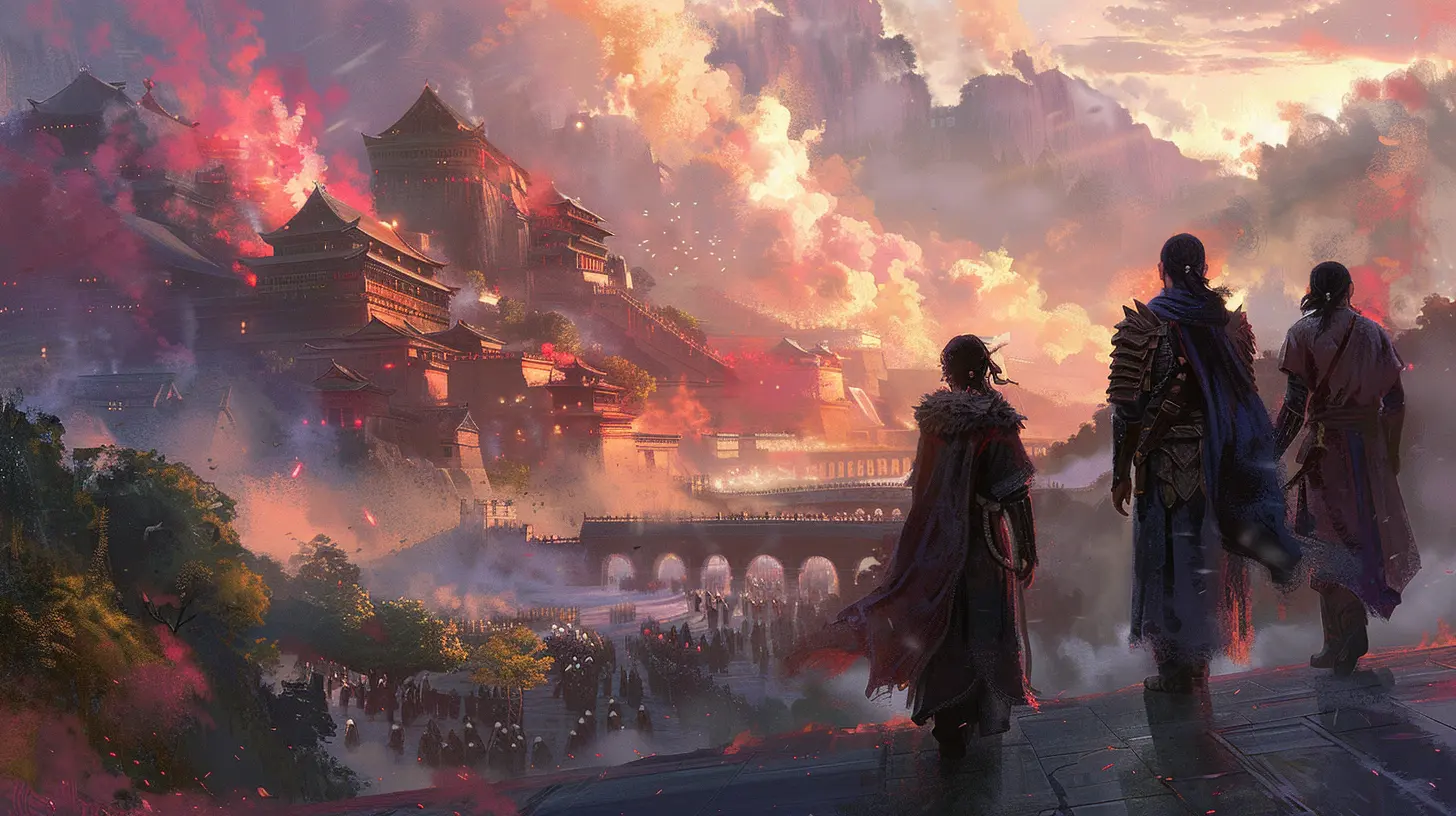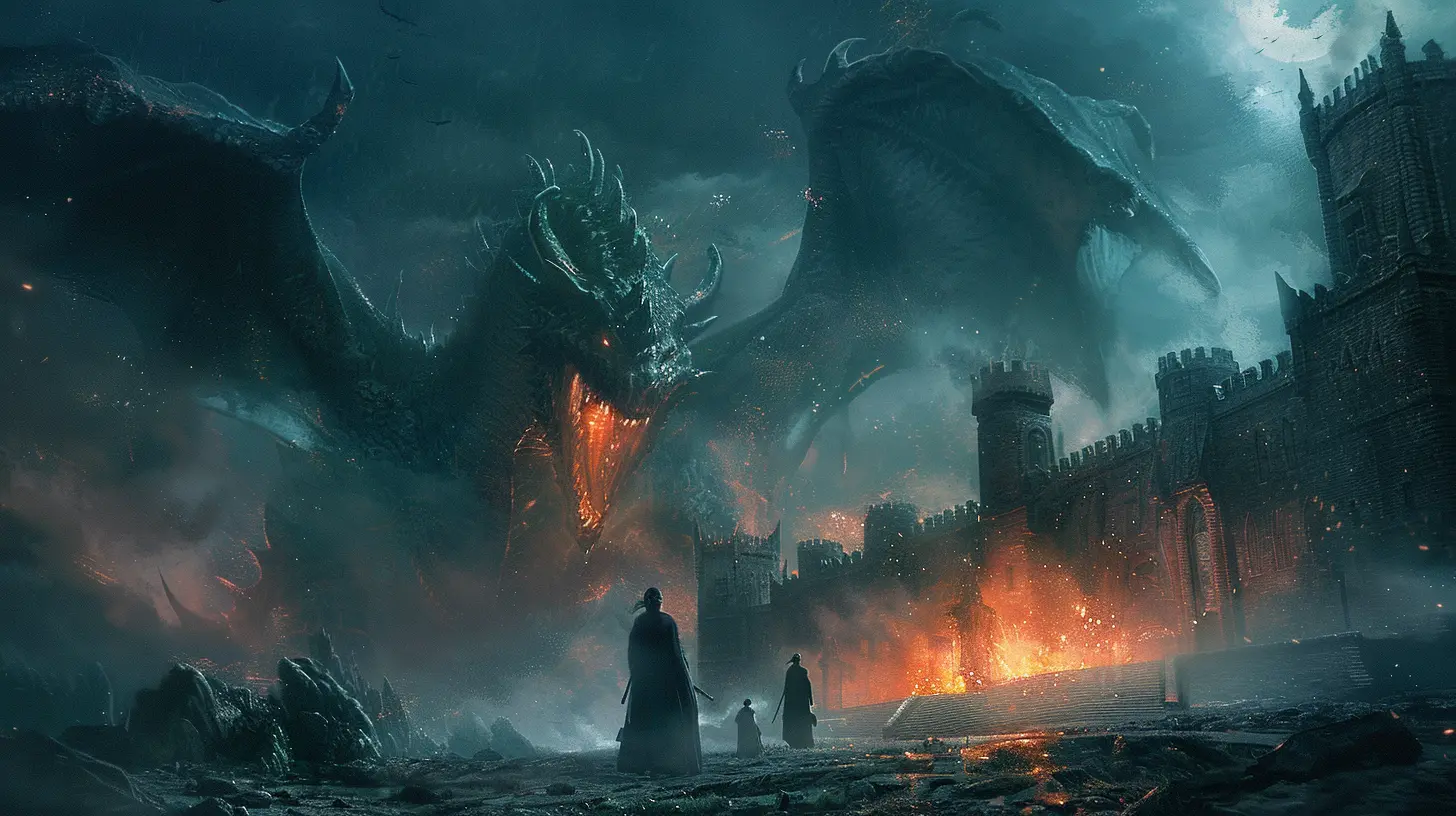Adapting Tabletop RPGs Into Digital Adventure Experiences
6 September 2025
Tabletop role-playing games (TTRPGs) have always had a special kind of magic. There’s something undeniably charming about friends huddled around a table, dice clattering, and imaginations running wild. But as much as we love the tactile feel of rolling those twenty-sided dice or sketching out hand-drawn maps, we’re living in a digital age—and adaptation is the name of the game.
The transition from tabletop to digital isn’t just a matter of convenience. It’s a shift that opens up new possibilities for storytelling, interaction, and immersion. So, what exactly does it take to translate the raw creativity of a TTRPG into a digital realm while keeping the spirit of the game alive? Let’s dive in, shall we?
The Essence of Tabletop RPGs: What Makes Them Special?
Before we start plugging tabletop mechanics into a computer program, we need to ask: what makes tabletop RPGs so unique in the first place? Is it the dice rolls? The math? The character sheets? Not quite. At their core, TTRPGs thrive on three things: collaborative storytelling, player agency, and imagination.Think about it: every tabletop session is like an unscripted play. The Dungeon Master (DM) sets the stage, players improvise their roles, and the dice add a pinch of chaos. It’s messy, unpredictable, and deeply human. That’s a tough vibe to replicate in a digital format. Computers are precise—they follow rules, while tabletop games thrive on bending them.
But here’s the thing—just because something is tricky doesn’t mean it’s impossible. Digital adaptations can capture that same collaborative energy; they just need the right approach.
Challenges of Going Digital
Alright, let’s get real for a second. Moving tabletop RPGs into the digital world isn’t a simple copy-and-paste job. There are some unique hurdles to tackle.1. Losing the Human Element
One of the biggest fears when going digital is losing the face-to-face connection. In a traditional game, you’re reading a person’s expressions, catching their jokes, and maybe even throwing dice across the table in frustration. How do you replicate that in a digital space?2. Balancing Creativity and Structure
Tabletop games are incredibly flexible. Want to convince the DM that your barbarian can leap across a chasm while juggling swords? Sure, why not? This kind of creativity thrives in the freeform structure of these games. Digital adaptations need to create rules and systems, which often risks feeling rigid or restrictive.3. Technical Complexity
Digital environments require programming, asset creation, and balancing mechanics. It’s one thing to design a cardboard dungeon with some markers and paper; it’s another to create a 3D-rendered dungeon that runs on multiple devices. Developers, I don’t envy you.
What Digital Platforms Can Bring to the Table (Pun Intended)
Despite the challenges, digital adaptations have some serious perks. They’re not just about trying to replicate the in-person experience but about enhancing it. Let’s talk about how the shift from tabletop to screen can be more than just a backup plan.1. Accessibility
Not everyone has a group of friends who can meet up weekly for a game. Digital platforms allow players to connect from anywhere in the world. Got a buddy in Tokyo? Another in New York? No problem—log in, and roll initiative.2. Immersive Worlds
Let’s face it, no matter how talented your DM is, they’re not going to paint a vivid 3D world in your mind every single time. Digital adaptations can use stunning visuals, soundtracks, and voice acting to pull players deeper into the world. Imagine hearing the growl of a dragon as it lunges at your character or seeing a beautifully rendered forest sway in the wind.3. Automation of Complex Mechanics
We all love a good rules debate, but sometimes it’s nice to let a computer handle the math. With digital adaptations, you can say goodbye to poring over charts to figure out damage calculations. Let the system handle it so you can focus on the story.4. Replayability and Content Expansion
Ever wish you could revisit a particularly epic campaign or easily bring in new players? Digital RPGs often allow players to save progress, download new content, or jump into user-created worlds. It’s like having an endless library of campaigns at your fingertips.
Examples of Digital Success Stories
Some developers are already nailing the transition from tabletop to digital in exciting ways. Let’s take a moment to geek out over a few standout examples:1. Baldur’s Gate Series
The Baldur’s Gate series is iconic for a reason. Rooted in Dungeons & Dragons mechanics, it blends strategic combat, rich storytelling, and player choice to create a seamless digital experience. The recent Baldur’s Gate 3 even brought turn-based combat into the mix, keeping that tabletop feel alive.2. Roll20 and Foundry Virtual Tabletop
These aren’t games so much as platforms, but they deserve a mention. Roll20 and Foundry offer digital spaces where players can roll dice, move tokens, and share maps in real-time. They’re proof that you can bring a tabletop vibe to an online format.3. Divinity: Original Sin 2
What sets Divinity: Original Sin 2 apart is its co-op storytelling. Like a group of friends sitting around a table, players can split off to pursue their own goals, team up for battles, or sabotage each other’s plans. It’s chaotic, unpredictable, and very on-brand for a TTRPG.How to Keep the Tabletop Spirit Alive in Digital Form
So, how do you adapt a tabletop RPG into something digital without losing the soul of the experience? Here are some tips for developers and enthusiasts alike:1. Emphasize Player Choice
At the heart of any great TTRPG is the ability to make meaningful choices. Whether it’s deciding the fate of an NPC or choosing how to solve a puzzle, digital games need to keep this freedom front and center.2. Incorporate Cooperative Storytelling
Don’t let the game hog the storytelling reins. Give players tools to shape the narrative themselves. Dialogue options, branching quests, and even sandbox-style exploration can all help recreate the collaborative feel of a tabletop session.3. Keep It Social
Whether it’s voice chat, text, or even pre-programmed emotes for character avatars, social interaction should be a priority. Digital doesn’t have to mean isolated. Lean into features that encourage communication and teamwork.4. Respect the Chaos
Part of the fun of tabletop RPGs is the unpredictability. Digital games should embrace this, whether through random events, dice rolls, or mechanics that encourage creativity over rigid structure.The Future of TTRPGs in the Digital Space
We’re just at the beginning of what digital adaptations can achieve. With advances in technology—like VR, AR, and AI—the possibilities are staggering. Imagine stepping into a VR tavern where you can chat with your party in real-time or having an AI DM that can adapt to your choices on the fly.But at the end of the day, no matter how advanced the tech gets, the heart of any TTRPG will always be the players. Digital adaptations should never try to replace the sense of community and creativity that happens around a table. Instead, they should amplify it, offering new ways to connect, imagine, and tell stories together.
Final Thoughts: Blurring the Lines Between Tabletop and Digital
Adapting tabletop RPGs into digital adventure experiences isn’t about swapping one medium for another. It’s about taking the best parts of both worlds and creating something fresh and exciting. Sure, it’s a challenge—but isn’t that what makes it worth it?Whether you’re a die-hard dice roller or someone who prefers a mouse and keyboard, one thing’s for sure: the spirit of adventure is alive and well. And at the end of the day, isn’t that what it’s all about?
all images in this post were generated using AI tools
Category:
Adventure GamesAuthor:

Luke Baker
Discussion
rate this article
1 comments
Farrah Porter
Finally! My dice can roll in digital dungeons without fear of my cat knocking them over!
September 8, 2025 at 3:48 AM

Luke Baker
Glad to hear it! Digital dungeons can be a game-changer for cat owners!


